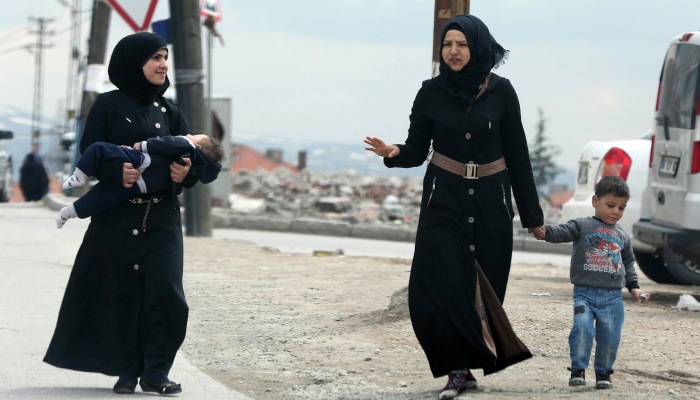The main problems Syrian women in Turkey face are access to better housing, language and access to employment opportunities, the Hürriyet Daily News reported, citing a UN Women needs assessment study.
“While many countries in the EU and the US are closing their doors to asylum seekers, in Turkey, our assessment found that Syrian women generally feel secure, but they face challenges to overcome poverty, access affordable housing and jobs. To overcome these challenges, many Syrian women need Turkish language training, more knowledge about their rights to work and services, and access to better [housing opportunities],” Dr. Sabine Freizer, United Nations Women Policy Adviser on Governance, Peace and Security, said at a June presentation of the study.
The language barrier is a major obstacle that stands in the way of Syrian women accessing rights and services, according to the needs assessment report, undertaken by U.N. Women and the Association of Solidarity with Asylum Seekers and Migrants (SGDD-ASAM). The research, conducted with financial support from the National Committee of UN Women in Iceland and the government of Iceland, is based on structured and in-depth interviews with 1,291 Syrian women and girls across seven cities.
Syrians in Turkey may enroll in free state-supported Turkish language courses, but the study found 70 percent of Syrian women do not speak any Turkish.
Only 15 percent of women work in income-generating jobs. Almost half of all widowed women surveyed survive on monthly incomes of around TL 700, as do 36 percent of divorced women and 32 percent of single women. Since 2016, Syrians under temporary protection have been able to obtain work permits for formal employment, yet only 35,000 work permits had been issued by the end of 2017. Very few were received by women.
Housing is one of the main problems for Syrian women in Turkey. They tend to settle in the same cities as their relatives, generally in the same house, with two to three rooms on average. Almost half (48.7 percent) are living in households with more than seven people.
Single Syrian women are prone feelings of estrangement towards the host community, and for this reason, they tend to prefer living in neighborhoods densely populated by Syrians. They are often in a house with another family or hosted by relatives. Unfortunately, the risks for gender-based violence, sexual abuse of girls and child marriage in crowded arrangements are high and hard to address. With the lack and inadequacy of women’s shelter services, there are few refugees from violence for Syrian women, according to the report.
Widows and young girls who must move to the houses of their male relatives are the most vulnerable to abuse under crowded conditions. For instance, a 49-year-old single woman without a child who has been living in Istanbul for four years said she experienced “economic abuse” when she stayed with her nephews in Adana.
“My nephews were working in Adana and I went there and worked with them. They beat me and made me suffer, they took my money and nothing happened when I complained. A woman, my previous neighbor from Syria, called me and invited me to Istanbul. Now I live alone,” she said.
Syrian women in Turkey appear particularly satisfied with their access to medical services. Eighty-six percent report being able to access free primary health care in the cities where they live. About 14 percent claim to face discriminatory attitudes, prejudices and language and/or cultural barriers, resulting in low-quality or a lack of services.
“I am having problems because I cannot speak Turkish. For example, to the doctors, I mean to say ‘intestines,’ but the doctor understands it as ‘stomach.’ So, he gives me the wrong medication. Sometimes, we throw away the medicine because it is the wrong one. Neither side can understand each other because of the language barrier,” said another woman from Gaziantep, who is 30 years old, married and with four children.
More than 17 percent of women interviewed said they live in substandard accommodation, such as basements with no sunlight and poor ventilation and shanty houses. Despite their housing problems, 87 percent of Syrian women claim they feel safe at home and 73 percent feel safe in their neighborhood.
Although Syrian women and girls face ill treatment and discrimination in their daily lives, 73 percent do not know where to find and seek assistance related to violence or harassment.
Freizer said they believe the gradual integration of Syrian women into social and economic life in Turkey requires programs that target women, gives them services that meet their needs, empowers them and helps them build stronger ties with the community in which they live. “U.N. Women has started implementing such programs through our SADA Women-only Center in Gaziantep,” she said.
Funded by the European Union as part of the EU Regional Trust Fund to the Syria Crisis and the Government of Japan, Strengthening the Resilience of Syrian Women, Girls and Host Communities aims for a minimum of 5,000 women and girls to directly benefit from these protection and livelihood opportunities under the Turkey component by January 2020.

